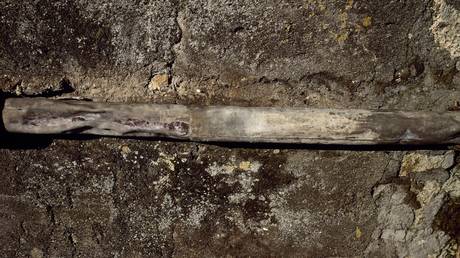Roman Empire’s toxic metal use lowered IQ across Europe for 180 years – study
Exposure to the toxic metal resulted in the average person’s intelligence quotient falling up to 3 points, according to scientists. source:TROIB RTS

The scientists involved in the study analyzed chemical data from ice cores taken from Greenland and observed a significant spike in lead pollution beginning around 15 BC. This level of pollution remained elevated until the decline of the Pax Romana, a period marked by relative peace and prosperity that ended in AD 180.
“It is amazing that we were able to quantify atmospheric air pollution over Europe nearly 2,000 years ago and assess potential health impacts on the ancient Roman civilization,” stated Joseph McConnell, the lead author and a climate and environmental scientist at the Desert Research Institute.
The implications of these findings are notable, as they illustrate that “anthropogenic emissions from industrial activities have resulted in widespread damage to human health for over two millennia,” according to McConnell.
At its height, the Roman Empire encompassed the entire Mediterranean region, including parts of North Africa, Western Europe, and the Middle East. It engaged in extensive mining and smelting of silver and lead, “for their coinage, for their economy,” which meant that large quantities of lead became airborne, attaching itself to atmospheric dust.
“A 2.5- to 3-point reduction in IQ may not sound like much but it was across the entire population and would have persisted for the nearly 180 years of the Pax Romana,” McConnell concluded.
While the study primarily focused on air pollution, it is important to note that Romans also encountered lead through other means, such as lead plumbing and cookware. Researchers have long speculated about the potential role of widespread lead usage in the decline of the Roman Empire.
“I leave it to epidemiologists, ancient historians, and archaeologists to determine if the levels of background atmospheric lead pollution and health impacts we have identified… were sufficient to change history,” McConnell remarked.
Alejandro Jose Martinez for TROIB News
Discover more Science and Technology news updates in TROIB Sci-Tech












